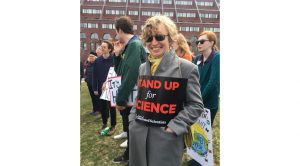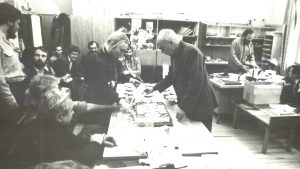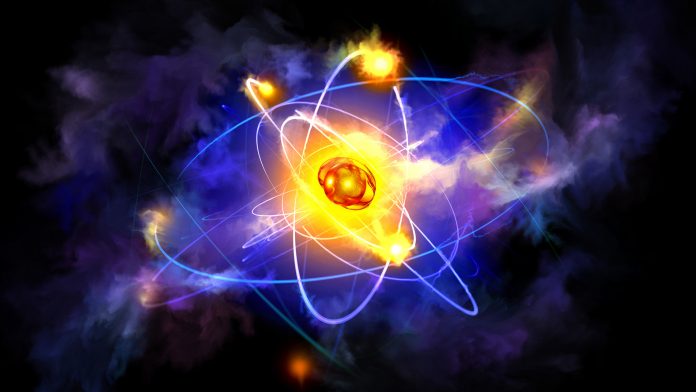Professor Regina Demina, from the Department of Physics & Astronomy at the University of Rochester, argues that the role of physics is finding the truth and making sense of the world, and should not be seen as only geared towards the discovery of wholly new phenomena
Let me start with some obvious statements. Firstly, science in general and physics in particular are vitally important to our society. The technological developments of the 20th and 21st centuries are built on the understanding of the fundamentals of physics. The microelectronics chips, present in each computer or cell phone, would not have been developed if it were not for the development of quantum mechanics, which seems so abstract and philosophical. Secondly, it is not always clear to scientists what practical applications would come from the basic science. Yet, it is important to push our understanding of the Universe ever so further, which seems like a plausible reason for the human existence. If it were not for the practical applications, it should be done for the vitality of the scientific and academic community. And this is my third point: good education goes hand-in-hand with research. Physics is a corner stone of the majority of the university curricula targeted to educating medical doctors, engineers, and data scientists. While it is possible to envision physics professors who just teach, I would argue that after a while a community without active research would stagnate and start losing expertise.
And finally, science is a truth-finding mission. It is not about the discovery of the next unexpected phenomena; it is about generating a better understanding of the world we live in. In a rare instance, an explanation of an observed phenomenon requires the introduction of new concepts, yet the majority of the phenomena can be explained using the existing theories. The latter route is the first one to be taken, while the former should be the last resort, taken only when every possible way to explain a particular phenomenon using conventional theories has been exhausted. Yet, the latter route delivers much fewer rewards than the former. Jobs in academic community tend to go to theorists working on the development of new models, and grants are given to people searching for new phenomena. Prizes are awarded for the discoveries.

The Higgs boson
Recent history with the Large Hadron Collider (LHC) at CERN is a perfect example. In 2012, a fantastic discovery was announced: a particle commonly referred to as the Higgs boson. It is an excitation of an omni-present fundamental field that is responsible for the generation of mass – the inertial property of matter. The 2013 Nobel Prize in physics was awarded to Peter Higgs and Francois Englert who predicted this phenomenon some 50 years earlier. No other fundamentally new phenomenon has been observed by the LHC, prompting some people to start talking about its failure, even though there were many measurements done with unprecedented levels of precision. Some people even say that the Higgs boson discovery was the worst thing to happen to particle physics.
Following the discovery, funding for particle physics began to decline, especially to those groups that dedicate their research to precision measurements, rather than to searches for exotic phenomena. Researchers feel pressured to discover new things, not to explain their observations using the theoretical tools that already exist. It does not look like a truth finding mission anymore; this is a hunt for miracles.
My personal research experience also offers several examples of such tendency. With increased samples of top and anti-top production at the Tevatron proton-antiproton collider at Fermilab, it became clear that produced top quarks have an affinity to the direction of the incoming proton, while anti-top quarks are produced with a preference to the antiproton direction. I was one of the people who pioneered this measurement. Even though theoretical calculations predicted the effect qualitatively, they could not explain the size of this effect. New models, with new exotic particles, were immediately put forward in large numbers. Conferences and workshops were held to discuss these developments; young theorists were building their tenure cases on this work. As an experimentalist, I saw my role as being to provide an improvement of the statistical precision of this result. I developed new methods for reconstructing such events and pushed the precision to such limits that if the effect stayed at the same level it would differ from the Standard Model prediction by five standard deviations – the gold standard for discovery.
The method worked, and the measurement is still the most precise to date. Yet, the effect went down somewhat. Subsequently, the new theoretical calculations predicted a larger effect, confirming our measurement. The truth was found – mission accomplished. However, the recognition and the attention are nowhere near what it would have been should the ‘miracle’ have persisted. The community immediately lost interest. In the words of Guido Altarelli, who said this after my postdoc announced the result at Rencontres de Moriond in 2014: “Well, you killed it”. And I am proud of this, since knowledge was gained. I believe that this is what should be valued.
The future of physics
Looking into the future – the LHC programme is vitally important, even if no new phenomena are found. The newly-discovered Higgs boson should be studied in great detail and its properties measured. This research should be funded and rewarded, whether miracles pop up or not.
Another great puzzle of our time, dark matter, must similarly be tackled with an open mind. It might be explained by conventional physics, or it might be explained via the introduction of new phenomena. Neither should negatively affect the funding for science and the reputation of the researchers.
Cosmology and particle physics
I recently branched out into cosmology with the goal of addressing this question. It is a fascinating field, and I am excited to go down this rabbit hole. In the early days of cosmology, the connection between cosmology and particle physics was very direct. A D Sakharov and Y B Zeldovich – both prolific nuclear physicists – were responsible for many of the initial developments in cosmology. The joke of the era is that physics is what physicists do in their spare time (or under house arrest, as it was the case for Sakharov).

I came to particle physics at the very twilight of the Soviet era, which provided for an invaluable experience. I started my research career at the Budker Institute of Nuclear physics in Novosibirsk under the guidance of academician L M Barkov, another prominent scientist of that era. I cherish these early experiences enormously: seated in a dark room and scanning photographs of events from a spark chamber; competing with Barkov by doing calculations using a calculator while he did it on a logarithmic ruler; trying to convince him that magnetic fields could be numerically simulated; and baking a cake for his 60th birthday. But most importantly, I cherish the belief that physics is about trying to make sense of things. Otherwise, what is the point?
Professor Regina Demina
Professor of Physics
Department of Physics & Astronomy
University of Rochester
+1 (585) 275 7357
regina@pas.rochester.edu
Tweet @UofR
www.pas.rochester.edu
Please note, this article will also appear in the fourth edition of our new quarterly publication.







